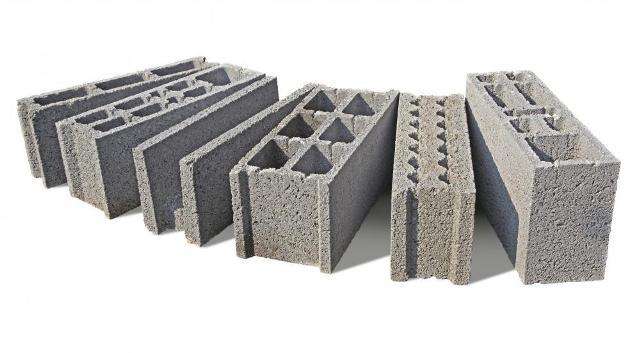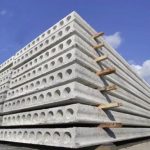Concrete block masonry which is also known as concrete masonry unit (CMU) have advantages over brick and stone masonry. Concrete blocks are manufactured in required shape and sizes and these may be solid or hollow blocks. The common size of concrete blocks is 39cm x 19cm x (30cm or 20 cm or 10cm) or 2 inch, 4 inch, 6 inch, 8 inch, 10 inch and 12-inch unit configurations.
Cement, aggregate, water is used to prepare concrete blocks. The cement-aggregate ratio in concrete blocks is 1:6. Aggregate used is of 60% fine aggregate and 40% coarse aggregate. Their Minimum strength is about 3N/mm2. ASTM C-90-91 specifies the compressive strength requirements of concrete masonry units.
Types of Concrete Blocks or Concrete Masonry Units
Depending upon the structure, shape, size and manufacturing processes concrete blocks are mainly classified into 2 types and they are
- Solid concrete blocks
- Hollow concrete Blocks
Solid Concrete Blocks
Solid concrete blocks are commonly used, which are heavy in weight and manufactured from dense aggregate. They are very strong and provides good stability to the structures. So for large work of masonry like for load bearing walls these solid blocks are preferable. They are available in large sizes compared to bricks. So, it takes less time to construct concrete masonry than brick masonry.

Hollow Concrete Blocks
Hollow concrete blocks contains void area greater than 25% of gross area. Solid area of hollow bricks should be more than 50%. The hollow part may be divided into several components based on our requirement. They are manufactured from lightweight aggregates. They are light weight blocks and easy to install.
Types of Hollow Concrete Blocks:
- Stretcher block
- Corner block
- Pillar block
- Jamb block
- Partition block
- Lintel block
- Frogged brick block
- Bull nose block


